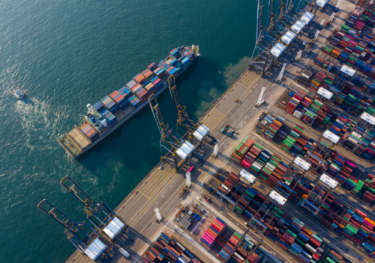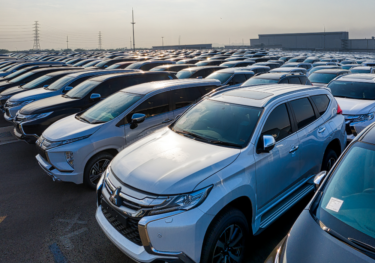Recent Release | 20 Jul 2023
Five ways to make the supply chain resilient: Thriving through disruption

Thought Leadership Team
Oxford Economics

Predicting future disruptions that might affect the supply chain is nearly impossible. But they can position put their businesses in a more favorable position to weather and even thrive during those disruptions by developing strategies that place supply chain needs front and center. A sizable number of executives have already established multi-year strategies that prioritize value chain investments in an effort to improve their future state, indicating that maintaining efficient, productive, and innovative supply chains innovation is a key to resiliency.
Think Pieces
Building visibility: How the supply chain planning function approaches resiliency to avoid risk
To create a more robust supply chain network, supply chain planning executives are searching for ways to make their function more efficient and resilient. Reaching those goals means they must gain an accurate view of demand, define alternate sourcing strategies, and build inventory optimization strategies in collaboration with their supply network.
Building the next-generation supply chain: How the manufacturing function approaches resiliency to avoid risk
The success of the next-generation supply chain depends on the free flow of high-quality data and collaboration between partners for maximum efficiency. That is top-of-mind for those in the manufacturing function who are seeking to instill resilience in an uncertain world.
Building speed and sustainability into supply chain logistics
After three years of unprecedented disruption and pressure on the way goods are sourced, made, transported, and delivered, logistics executives are looking to transform and fortify next-generation global supply chains to be more reliable and sustainable. This transformation is driven not only by lessons learned in the years of “permacrisis” but is also underpinned by customer demands for speed, personalization, and sustainability.
Think Pieces
The experts behind the research
Our Thought Leadership team produces original, evidence-based research made accessible to decision-makers and opinion leaders. Principals for this project included:

Matthew Reynolds
Senior Research Manager, Thought Leadership

Teri Robinson
Managing Editor, Thought Leadership
Tags:
Recent supply chain-related reports

Downside risks for Asian industrial real estate markets
The 'liberation day' tariffs have been postponed, but the existing tariffs and those likely forthcoming present significant downside risks for most Asian industrial real estate markets. Reduced business investment, weaker confidence, and risk-off sentiment alone will inflict a demand shock on industrial and logistics operators, with expansion plans likely on hold.
Find Out More
Tariffs will weigh heavily on US business equipment investment
The increase in tariffs announced so far will add more than 10ppts to the cost of business equipment in the US.
Find Out More
Effects of higher US tariffs and responses from ASEAN
The 'Liberation Day' tariffs announced by US President Trump have been postponed. But they will have significant consequences for ASEAN if they are eventually implemented. We doubt ASEAN supply chains can adjust quickly.
Find Out More
25% auto tariffs especially painful in Japan and South Korea
US tariffs of 25% on all automobile and auto parts will weigh heavily on the Japanese and South Korean automotive sectors. A GTAP analysis suggests Japanese and South Korean automotive production will each shrink by approximately 7%. The impact is larger than suggested by bilateral trade data, because vehicles assembled in other countries before being shipped to the US will also be affected, dampening domestic auto parts production.
Find Out More